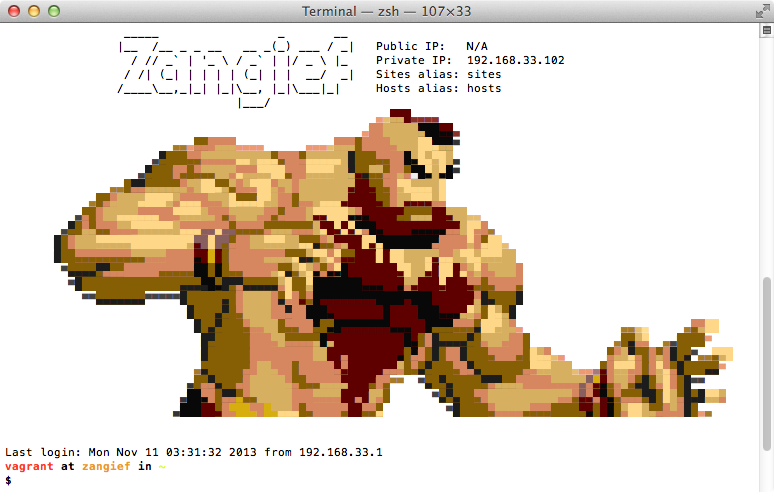Want to create a Gist from your editor, the command line, or the Services menu? Here's how.
| <?php | |
| /** | |
| * @author Jonathon Byrd | |
| * @package Address Parsing | |
| * | |
| * | |
| */ | |
| class AddressHelper extends ObjectBase | |
| { | |
| /** |
| ; Sample supervisor config file. | |
| [unix_http_server] | |
| file=/tmp/supervisor.sock ; (the path to the socket file) | |
| ;chmod=0700 ; sockef file mode (default 0700) | |
| ;chown=nobody:nogroup ; socket file uid:gid owner | |
| ;username=user ; (default is no username (open server)) | |
| ;password=123 ; (default is no password (open server)) | |
| ;[inet_http_server] ; inet (TCP) server disabled by default |
I have always struggled with getting all the various share buttons from Facebook, Twitter, Google Plus, Pinterest, etc to align correctly and to not look like a tacky explosion of buttons. Seeing a number of sites rolling their own share buttons with counts, for example The Next Web I decided to look into the various APIs on how to simply return the share count.
If you want to roll up all of these into a single jQuery plugin check out Sharrre
Many of these API calls and methods are undocumented, so anticipate that they will change in the future. Also, if you are planning on rolling these out across a site I would recommend creating a simple endpoint that periodically caches results from all of the APIs so that you are not overloading the services will requests.
| <?php | |
| // Access a property with no restrictions | |
| function stole($object,$property){ | |
| $dict = (array)$object; | |
| $class = get_class($object); | |
| return isset($dict[$property])? | |
| $dict[$property]:(isset($dict["\0*\0$property"])? | |
| $dict["\0*\0$property"]:(isset($dict["\0$class\0$property"])? | |
| $dict["\0$class\0$property"]:null)); |
Update: I made this a proper blog post
- linux box
-
Data Down / Actions Up
- http://emberjs.jsbin.com/nayaho/edit?html,js - Interdependent select boxes. No observers.
- http://ember-twiddle.com/2d7246875098d0dbb4a4 - One Way Input
-
Plain JSBin's
-
Ember Version Base JSBin's
This post is also on my blog, since Gist doesn't support @ notifications.
Components are taking center stage in Ember 2.0. Here are some things you can do today to make the transition as smooth as possible:
- Use Ember CLI
- In general, replace views + controllers with components
- Only use controllers at the top-level for receiving data from the route, and use
Ember.Controllerinstead ofEmber.ArrayControllerorEmber.ObjectController - Fetch data in your route, and set it as normal properties on your top-level controller. Export an
Ember.Controller, otherwise a proxy will be generated. You can use Ember.RSVP.hash to simulate setting normal props on your controller.
I've been asked a few times over the last few months to put together a full write-up of the Git workflow we use at RichRelevance (and at Precog before), since I have referenced it in passing quite a few times in tweets and in person. The workflow is appreciably different from GitFlow and its derivatives, and thus it brings with it a different set of tradeoffs and optimizations. To that end, it would probably be helpful to go over exactly what workflow benefits I find to be beneficial or even necessary.
- Two developers working on independent features must never be blocked by each other
- No code freeze! Ever! For any reason!
- A developer must be able to base derivative work on another developer's work, without waiting for any third party
- Two developers working on inter-dependent features (or even the same feature) must be able to do so without interference from (or interfering with) any other parties
- Developers must be able to work on multiple features simultaneously, or at lea
